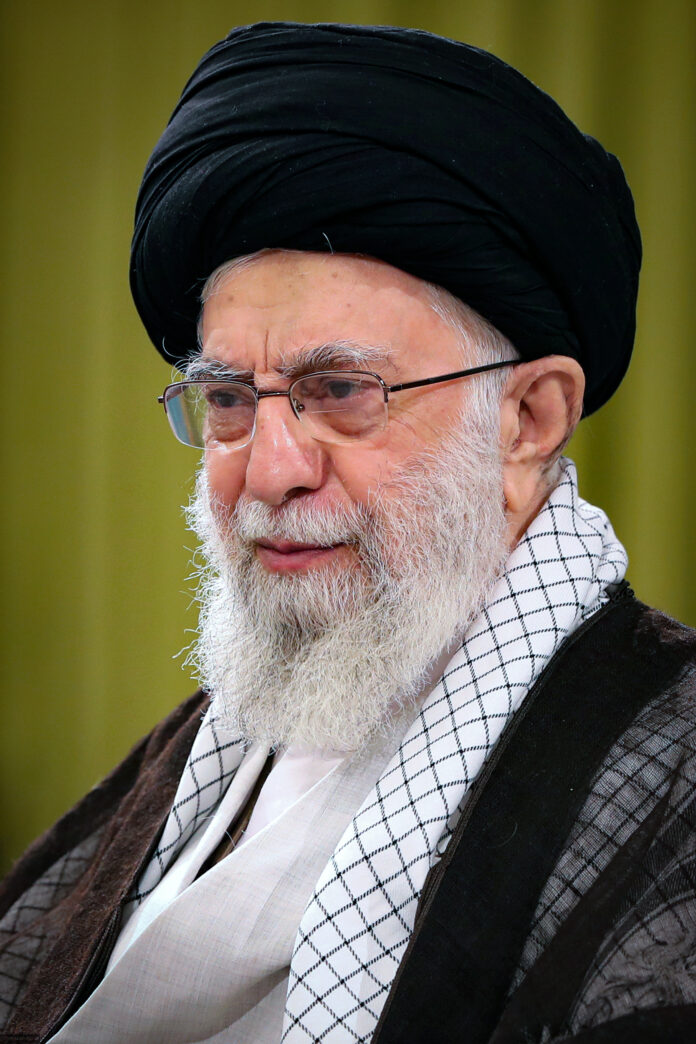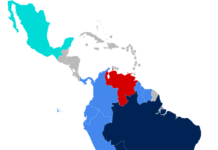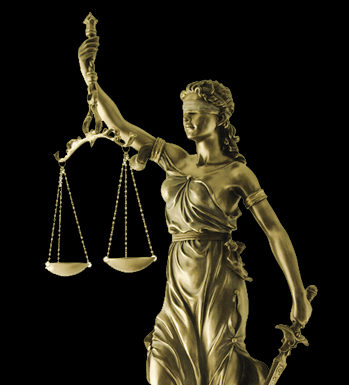
By Miguel Nunes Silva, Director of Portugese think tank Trezeno Institute
It may seem like a distant memory now but half a century ago, Tel Aviv and Tehran were close allies. Much changed after the Islamic revolution but the enmity was not an inevitability. The Carter administration was even willing to recognize the new theocratic regime which had moved quickly to isolate and then purge the communist elements in its coalition of opposition to the Shah. The White House perhaps thought that Iran could become a Persian variant of Middle East fundamentalism, just as Saudi Arabia had been across the gulf. Indeed, during Iraq’s counter-revolutionary intervention in Iran, both Israel and the US supplied arms to the ayatollahs.
The US embassy hostage crisis was a mistake but probably one that could have been surpassed with some diplomacy and tact. Instead, Iranian diplomacy and its Revolutionary Guards Corps (IRGC) spent the next decades deeply antagonising powerful power blocs on both sides of the Cold War. Ayatollah’s Kohmeini’s “neither East nor West” formula completely isolated the Islamic Republic for a decade until his death. During the 1990s, the situation did not much improve as the ‘hyperpower’ was highly influential in Moscow as well. A colossal weapons package deal signed with the Russians as the USSR crumbled would, therefore, not be completed, leaving Iran with but a few dozen modern fighter jets and air-defence systems.
Tehran’s support for rogue regimes around the world and IRGC meddling in conflicts throughout the Middle East and the West, further contributed to its permanent pariah status. Exemplifying: Iran was an $80 billion economy just before the Islamic Revolution, compared to Egypt’s $15 billion. Iran had a comparable population, more fertile territory and, of course, oil. In 2024 though, Egypt’s $480 billion surpasses Iran‘s $415 billion. Saudi Arabia had a similar economy with its much larger oil reserves but today dwarfs Iran‘s with its $1.1 trillion. Iran has been lagging behind and has no one to blame but itself.
Influenced by Ali Shariati’s islamist third-worldism, the radical revolutionary government quickly found itself alone in the Middle East with all sunni states regarding it with such suspicion that Saddam Hussein had great ease convincing the region to finance his intervention against the ayatollahs. Apart from declared hostility to the world powers – and consequently their respective blocs – revolutionary Iran further fueled antagonism by gratuitously interfering in Israeli and Lebanese politics, supporting the Palestinians and lebanese shia, respectively. This, in turn, would also lead to European and Mediterranean states reacting against the Iranian revolution. In the 40 years since the revolution, Iran has spent billions sustaining Hezbollah and various Palestinian terrorist groups along with considerable diplomatic and political capital without anything to show for its efforts. Palestine and Lebanon are nothing but vanity projects by a regime that can ill afford indulgences. Iran does not border the Levant and cannot even reach it by sea. The expense of propping up polities so far away would have been prohibitive in the best of circumstances but under diplomatic and strategic siege, it is perfectly wasteful.
A sponsor of terrorism
Not content with such ‘passion projects’, Tehran has also thrown its diplomatic standing to the wind by sponsoring and conducting terrorist and paramilitary activities from the Middle East, to Europe, to Latin America and Asia, often – but not exclusively – in its feverish quest against Israel and Jews. Its latest ‘investment’ is Yemen, where it has been funding and arming the Ansar Allah faction of the civil war. As if that were not ambitious enough, Iran now incentivises the Houthis to target international shipping as well, seeking retaliation for Israel’s intervention in Gaza. This naturally brings it even further international condemnation with the EU recently agreeing to move ahead with an expansion of sanctions on the Islamic Republic.
The only example of strategic thought from the Iranian leadership was its conduct throughout the last decade, especially since the Arab Spring. Over the years, Tehran had maintained a solid partnership with Syria so as to counterbalance Baathist Iraq but after the 80s, to also keep a local springboard for logistical aid to Hezbollah and the Palestinians. After 2011, the revolts in the Arab Street, enthusiastically supported by the atlanticist powers, eventually spread to Damascus which quickly necessitated Iranian assistance to keep the Assad regime from collapse. The ayatollahs invested billions keeping Assad afloat, mobilised Hezbollah to assist government troops in western Syria and even shipped shia mercenaries recruited from the Hazara ethnic group in Afghanistan as well as from Pakistan. The alliance with Syria – which Iranian leaders call the ‘Axis of Resistance’ – had previously proven its worth by uniting Damascus and Tehran in their support for anti-American insurgent forces in Iraq, after the 2003 intervention. Together, they succeeded in eventually causing a US withdrawal and staving off any potential American intervention against them… that is until the Arab Spring. Despite saving Assad’s regime, Syria remains occupied to this day by Turkish and US forces. The most important stroke of luck for Tehran was, however, the newfound partnership with Moscow. Assad being Russia’s most important partner in the Middle East and jihadist forces bringing Chechen troops to fight in the Levant, enjoying sanctuary from the Russian chase, would, in 2016, force the hand of the Kremlin into an alliance with the ayatollahs, to rescue Bashar al-Assad and avoid a revolutionary fate for Syria.
After decades of courting Moscow, the Iranian regime’s efforts finally paid off and it managed to break out of its isolation. Iranian supplied cannon fodder coupled with Russian air power and diplomacy, proved a winning recipe for the Syrian counterrevolution. Further still, it sowed the seeds of empathy from the Gulf monarchies whose similarly reactionary policies were under way in Egypt and Libya. In addition, Iran gained a partner in the BRICS and in the Shanghai Cooperation Organisation, opening the way for commercial integration and foreign direct investment.
The election of Masoud Pezeshkian as President and the appointment of Abbas Araghchi as Foreign Minister were thought to bring a reformist tone to the negotiations table but either the reformists have little influence over foreign policy or the regime feels emboldened by its new diplomatic upgrade. Indeed, Russian technology, Chinese markets and Indian investment (New Delhi and Tehran remained close due to their common stance against the Taliban and sunni jihadism) may even eventually elevate Iran to being economically on par with Saudi Arabia and integrating the G20.
Nevertheless, Iran‘s gratuitous war against Israel and its egregious targeting of Western shipping by proxy, must cease. Sizeable interests are at stake, primarily the direct national interests of European nations pertaining to commerce and security. Iran must be made to understand that difficult choices have to be made. If Tehran wishes to integrate the international community, its rogue behaviour must end. Since Iran‘s partners are its newfound strength, it is with these partners that Westerners must deal.
Ahead of #Israel's planned retaliation, #Iran's regime's supreme leader appears to still be in Tehran in the Office of the Supreme Leader, insisting the #IRGCterrorists Axis of Resistance is still standing and will be victorious despite the decapitation of the leadership in… pic.twitter.com/EXn0KBbjTu
— Jason Brodsky (@JasonMBrodsky) October 23, 2024
For once, Brussels is doing its job in exerting pressure on the ayatollahs. The EU was set up to zeal for the commercial interests of European nations and Iran is directly attacking those interests. Moreover, it is doing so on a whim and not out of necessity. European and Iranian interests are not incompatible. Rather, the Islamic Republic’s ideological proclivities are the primary obstacle to mutual peace and prosperity.
The US response in bombing Yemen is completely ineffectual: because it deals with consequences instead of root causes and because it is horrible optics which provides a narrative of a technological superpower bombing impoverished peasants, thus lionising Iran in the Arab Street.
It is time for Western states to provide Iran‘s partners with very concrete promises of retribution should the attacks on shipping continue: if Moscow, Beijing and New Delhi understand that having Iran be given a taste of its own medicine would harm their interests too, perhaps Tehran will finally be cajoled into moderation. Arming Middle East factions with the capability to target shipping, can be a two way street and very easily so.
While EU member states could exert proxy military pressure by arming factions in the region, the European Union could send an initial message by delisting a number of Asian terrorist organisations from its sanctions index. This would facilitate their fundraising operations in Europe which would anger Tehran, New Delhi and Beijing. This is, in fact, a step which the West can take disproportionately, since fundraising is usually easier in free and prosperous societies than it is in closed impoverished ones. In other words, the Asian giants would not be able to reciprocate. The External Action Service could then impress upon the BRICS that their cooperation with Iran would come at a cost if the arming of the houthis were to continue.
Irregular warfare must either stop entirely or be expanded until all parties understand what is at stake.
Disclaimer: www.BrusselsReport.eu will under no circumstance be held legally responsible or liable for the content of any article appearing on the website, as only the author of an article is legally responsible for that, also in accordance with the terms of use.












